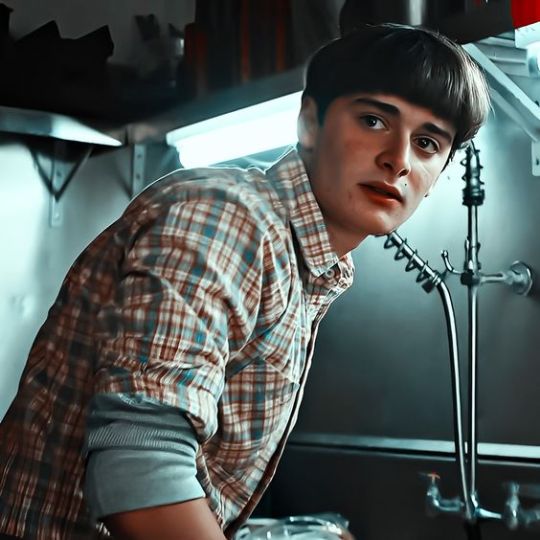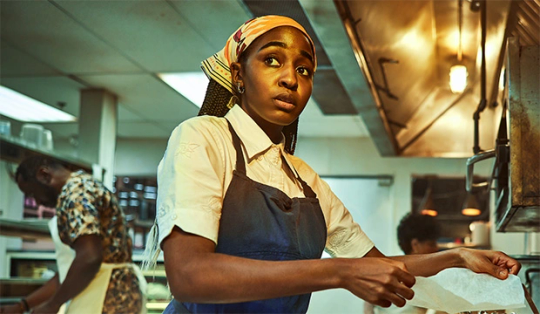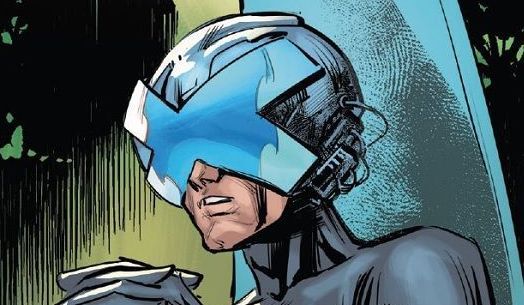#typology stuff
Text
INFP: Fi-Ne-Si-Te









Complex Dreamy Creative Honest Idealistic Devil-may-care Melancholic Scattered Imaginative Deep Inner-directed
Anne Shirley-Cuthbert from Anne with an E
Frodo Baggins from The Lord of The Rings
Wanda Maximoff from Marvel
Miguel Díaz from Cobra Kai
Viktor Hargreeves from The Umbrella Academy
Ben Solo/Kylo Ren from Star Wars
Will Byers from Stranger Things
Lucy Pevensie from The Narnia Chronicles
Luna Lovegood from Harry Potter
#mbti#typology#typology stuff#16 personalities#16 personality types#mbti personalities#mbti personality types#mbti stuff#mbti types#infp#mbti infp#personality types#infp characters
40 notes
·
View notes
Text
The cognitive functions

Hi everyone! This is my second post about tipology (especially MBTI) here on Tumblr and in it I will explain more about cognitive functions. If you are new to the typology field and want to know more I would recommend you to check this post of mine (is a quick overview of this whole theory while trying to keep it as simple as I can so that everyone will be able to understand at least the basic concepts) Hope you like it and find it useful! 🫶🏼

General definition
Functions are one of the basic concepts in typology, and it could be sum up as how we process the information we receive and the way our personality traits show up in real life. There are a total of 8 functions: Se (Extroverted Sensing), Si (Introverted Sensing), Te (Extroverted Thinking), Ti (Introverted Thinking), Ne (Extroverted Intuition), Ni (Introverted intuition), Fe (Extroverted Feeling) and Fi (Introverted Feeling).
I promise I will be posting explantions for each function in a few days.I will attach the link to them here as soon as I publish them I promise 😅
The different function positions
Everyone has four basic functions that all together make the “code” of our true personality. Depending on the order the functions are sorted, our personality will be one way or another.
Dominant function: abbreviated to Dom function. It’s the first one, it is the one we use more in our daily basics and the one we develop earlier in life. This function related to the core and most easy to identify values of our personality, this also includes our strengths and weakness.
Auxiliary function: abbreviated to Aux function. The other half of our traits depend on it and this function is the one who keeps the balance with the Dom function.
Tertiary function: we use it in a smaller proportion. We can have some problems to manage it during childhood or early adolescence, but we always learn to deal with it as we grew up (usually in our young adult years). You can see it as an unlocked additional ability, if that makes sense.
Inferior function: this is the set of traits or attitudes that each person will struggle more to be or act like. We only rely on it when the other three functions fail or when we are tired or stressed. A normal person will learn to properly use them around their 30s or 40s, but some people will never be able to understand them.
Extroverted vs Introverted functions
Everyone has two extroverted and two introverted functions (it doesn’t mind if you are introverted, extroverted or ambivert in the general definition of these words). And they are always sorted in one of these two orders.
Introverted Dominant function - Extroverted Auxiliary function -Introverted Tertiary function - Extroverted Inferior function
Or
Extroverted Dominant function - Introverted Auxiliary function -Extroverted Tertiary function - Introverted Inferior function
If your Dominant function is extroverted the first letter of your MBTI will be an E, on the other hand if your dom function is introverted the letter will be an I. And, as I said, this doesn’t necessarily mean that you are an extrovert or introvert person (this is what 16p does). Someone with a Dominant Extroverted function can prefer solitude to being around others; and someone who has an Introverted Dom function can be a social butterfly too.
What does it mean when someone has an unhealthy MBTI type?
When someone can balance their functions properly and end up relaying in their dom or aux functions way to much they become an unhealthy version of their type (which leads to different flwas depending on each type). That's why we need to learn how to use all of our functions
That's all for now, thanks for reading. If you have any question you can ask me on the commentaries, reblogs or in my inbox, I will love to help. Reblogs are appreciated 🥰
#MBTI#mbti#mbti stuff#mbti types#mbti personality types#mbti personalities#mbti functions#typology#typology stuff#16 personality types#16 personalities
37 notes
·
View notes
Text
I really don’t know if I have typology obsessed mutuals in here but I’ll talk about it anyway.
Ok so there’s this thing that has been bothering me for around a week or so. At first I used to think that Dr Robotnik (from the movies) is an ENTP, I mean, yeah he has some traits, I can’t elaborate right now since I’d have to re watch the movies to do a proper argument defending that he is one, but whatever.
So I went to check Personality DataBase and people over there typed him as ENTP, although there is a group of ppl that think he is ENTJ, not gonna lie, their arguments are so basic and some even don’t bother to tell you why he’d be an ENTJ, but searching about this type I realized he has a really good amount of characteristics from that type. Anyway, I’m confused since the enneagram types he has been assigned have a big weight on both ENTP and ENTJ, I mean, it’s hard for me to type him because he has the same enneagram types as me, but I’m an ENTP. I think we share the same thought process plus he uses sarcasm as a coping mechanism, typical of ENTPs and enneagram 8s/7s…
His enneagram types step on my way to type him because of what I said before, we share some of them blah blah whatever… It is a common thing for ENTPs that have a different enneagram type from the stereotype (7w8) to be confused as ENTJs, such as myself. I could be mistyped by one of them for having the 854 tritype if I don’t show “typical” traits from ENTPs (sarcasm, powerful ideas/thoughts on random moments, etc)… My point is, it’s difficult to type him with that enneagram, but I’ll try anyway.
As for Stone, people typed him as an INTP, I would agree if I knew more about this type. I actually don’t see him much on an INTP… Maybe I’ll blame it on the fact that Stone doesn’t have so much time on screen, but he doesn’t seem of a thinker for me, he’s just so… emotional. Although I’ve seen people arguing over him being an ISFJ, kinda makes sense to be honest… but my knowing related to this type is null. On the other side, it’d be super cute if they actually are an INTP x ENTP couple, I love the dynamic between those two types.
Edit: what the fuck, I just checked pdb again after writing this and now he is typed as an ISFJ. Hm, and they even changed his enneagram to 6w5… interesting.
I’d love to hear someone else’s elaborated opinion on this :3
16 notes
·
View notes
Text
also I really mean it when I say I’m working on a longer project, I’ve applied to go an extra project year at my school, which means I could potentially get to spend an entire year just drawing on my comic!! That would be huge but of course I won’t get to know if my application has gone through until sometime in June rip:,]
#dw dw I’ve applied to other stuff as well#but if I don’t do the project year it’ll be graphics design college#and realistically how much will I have to draw vampires if I’m busy learning typology n stuff#that would be fun too of course#but this is still. a bit more fun ya know#mio talks#*how much TIME will I have geez
21 notes
·
View notes
Text
Amy Dunne Character Analysis
Disclaimer
This analysis will be of Amy’s character from both the book and the movie, although the 2014 movie adaption takes greater precedence with only some additional details and quotes included from the book as it does delve deeper into Amy’s psyche and add further characterization. Thus some traits may be accentuated further than they are in the movie, not being completely faithful to either story. It’s an analysis of Amy in her totality across mediums, of course being entirely my opinion. There are of course adaptational differences but I will not include the major ones from the books (ex. her relationship with Hillary Hand). This is an analysis focusing primarily on Amy’s neuroses she demonstrates and the childhood links to them, it doesn’t cover in-depth the events nor themes of Gone Girl.
Amy Elliott Dunne, the ever enigmatic dual protagonist- antagonist of Gone Girl is one of the most iconic female villains in modern memory, and one of the paragons of the “good for her” trope in media, is, frankly, one of my favorite characters of all time. As such I have been dying to write a full analysis examining her neuroses and characterization. Beneath the cultural perception of just another “crazy psycho” for girls to claim “she did no wrong” or “she just like me fr!”, lies a fascinating character who is masterfully written and developed by Gillian Flynn. Not to mention perfectly portrayed by Rosamund Pike in the movie. Amy Dunne is a character with a deep, complex psychology that I will do my best to thoroughly explore in this analysis.
From Amy’s childhood we first see the emergence of a literal high ego ideal, Amazing Amy. Of course this is the children’s book series created by her parents with a fictionalized version of Amy being the eponymous protagonist. This was a version of herself that rectified her own personal failures. Amazing Amy became a prodigy at cello, when Amy quit at 10, Amazing Amy made varsity volleyball, Amy got cut freshman year. Even in the (at time) final book in the series, Amazing Amy got married, a task Amy had not yet done. The entire book series revolved around Amy always making the most virtuous, the most selfless, the most perfect decisions.
>”With me, regular, flawed, real Amy, jealous, as always, of the golden child.”
An interesting detail in the book that is omitted from the movie is Marybeth’s numerous miscarriages and stillbirths (which totaled 7). All of these girls were named Hope, until Amy was born. Amy expresses her jealousy towards them, as they were always seen as perfect without ever living; meanwhile Amy herself has to live life everyday knowing that she will never truly live up to the Hopes. That she has to try everyday to be the best she can be. Her very birth was mired in the expectation of a perfect child; given that she was practically a gift from the heavens to her parents.
This sets up Amy’s perfectionism, as the childhood experience of never living up to a projected ideal led her to want to be perfect (and as we’ll later see, the expectation that everyone else is too), to live life always through the gaze of another. Evidently this leads to a loss of one’s inner essence, one’s individuality and sense of self.
>“-I’d never really felt like a person, because I was always a product” (Book Quote)
Amy’s obsession with personas can be seen as emerging from this, as she adapts a personality depending on who she’s interacting with, as to always be the most appealing she can, she is Amazing Amy after all.
>”I’m not sure, exactly, how to be Dead Amy. I’m trying to figure out what that means for me, what I become for the next few months. Anyone, I suppose, except people I’ve already been: Amazing Amy. Preppy ’80s Girl. Ultimate-Frisbee Granola and Blushing Ingenue and Witty Hepburnian Sophisticate. Brainy Ironic Girl and Boho Babe (the latest version of Frisbee Granola). Cool Girl and Loved Wife and Unloved Wife and Vengeful Scorned Wife. Diary Amy.” (Book Quote)
This general attitude leads to people trying to impress her as she places herself as someone special and especially someone to keep around. Not to mention she’s incredibly pretty and alluring. Enticing both the characters and viewers of the film through her enchanting aura. However we’ll see this dramatically backfire in her relationship with Nick, just you wait!
However for now we can focus on the beginning of their relationship as well as what I believe to be Amy’s view on romance.
I believe that Amy has an impossibly high standard of love, one that stems from her perfectionism and general inability to let down her guise of being amazing. Not to mention how her parents were a perfect match, Amy even referring to them as soul-mates.
>”They have no harsh edges with each other, no spiny conflicts, they ride through life like conjoined jellyfish—expanding and contracting instinctively, filling each other’s spaces liquidly. Making it look easy, the soul-mate thing.” (Book Quote)
In her childhood it’s implied that she was into romance novels, specifically Jane Austen’s Pride and Prejudice, which obviously contributes to the idealization of romance, of a literal scripted love.
>”You were an alienated teen and only Elizabeth Bennet understood you”
I think this little quote is incredibly indicative; it establishes a sense of alienation, of Amy never quite fitting in and blending with others.
>”So many lessons and opportunities and advantages, and they never taught me how to be happy. I remember always being baffled by other children. I would be at a birthday party and watch the other kids giggling and making faces, and I would try to do that too, but I wouldn’t understand why. I would sit there with the tight elastic thread of the birthday hat parting the pudge of my underchin, with the grainy frosting of the cake bluing my teeth, and I would try to figure out why it was fun.” (Book Quote)
Back to the topic of romance, through these stories it allowed her to imagine her perfect romance: if Amy could find that one person that truly understood her, beyond the illusion, that then would constitute a perfect union of love. She does deep down (whether consciously or not) want to be loved for who she is; not the idealized, palatable, literal marketed version of herself. Thus she holds trust as a premium, expecting that if she does the Herculean task of unspooling and revealing herself to another, that the other person would love her no matter what.
>”Can you imagine, finally showing your true self to your spouse, your soul mate, and having him not like you?” (Book Quote)
However all of this culminates in an impossibly high standard of a lover, of a practically divine mythical love; where one loves totally and absolutely. Of course where this neurosis is most demonstrated is in Nick and Amy’s relationship.
Amy comments that after meeting Nick she finally felt like a person as he brought out a side of herself that hadn’t been seen, in her own words “a lightness and an ease”, something that Amy enjoyed. In her eyes they had the perfect relationship in the beginning, Nick was her compliment with the witty banter, with their inside jokes, and charm.
However this doesn’t just vanquish her childhood neuroses, through her desire to be seen as perfect, she modifies herself to be a “cool girl” for Nick, complying endlessly to standards to maintain this perception.
>” When I met Nick Dunne, I knew he wanted a cool girl and for him, I’ll admit, I was willing to try.”
Amy essentially became Nick’s image of a perfect girl, witty, fun, and most of all easy-going and forgiving.
Yet one cannot live forever in images and ideas; and as such, the real, true Amy emerged. The Amy that cares too much, that’s hard to get along with, that is a controlling perfectionist. She also tests Nick through the treasure hunts, weaving in little details about their relationship as to challenge Nick and hope that he remembers the things they do together as deeply as she does. Combined with the 2008 recession and declining health of Nick’s mother (the consequences of which will be explored later). As well as Nick’s growing dissatisfaction in the relationship (evidenced by his worsening performances in the treasure hunts, the cheating, using her for sex and ignoring her otherwise, etc). The illusion both Nick and Amy were living in crumbled; they couldn’t possibly sustain their relationship as they were both striving to fulfill reciprocating images for the other.
One of the biggest parts of her character is Amy’s elitism and entitlement, in which she thinks of herself as someone superior, someone that deserves to be loved absolutely for who she is, although only to people she considers worthy.
>”She’s easy to like. I’ve never understood why that’s considered a compliment—that just anyone could like you.” (Book Quote)
Once again this stems from her childhood, in a seemingly contradictory way, she also sees herself as special for being the one that survived from her mother’s attempts, as well as the fact that her birth was so tumultuous that she would be an only child. From this also stems her entitlement for love.
Amy actively looks down upon women she considers “average”, whom she sees as coming from mediocrity and continuously perpetuating that in their lives. She scoffs at them with her wealthy parents and NYC background until her marriage with Nick crumbles. Only then does she realize that she’s become the very woman she would previously disdain. A woman with a failing marriage, the loss of her previous wealth following the recession, and moving to a failed development in Missouri (What the hell’s in Missouri?) for Nick’s mother.
I truly believe this, combined with Nick’s infidelity, and most importantly the loss of her idyllic love culminated in the iconic Gone Girl plan.
>”Nick took and took from me until I no longer existed, that’s murder. Let the punishment fit the crime”.
Nick took Amy’s identity, her sense of self that she so generously revealed to him and rejected her. Implying that she would only be loved if played the role of the “cool girl”; stripping her of who she really was, losing herself in yet another persona. Although Amy admits she doesn’t really have a personality and lives through personas, she still has a semblance of self that she holds dear.
>”-made me realize that there was a Real Amy in there, and she was so much better, more interesting and complicated and challenging, than Cool Amy”. (Book Quote)
Worse yet, Nick had cheated on her with a “newer, younger, bouncer Cool Girl”, leaving Amy in the dust, surely damaging her pride.
But Amy truly fell in love with her idealized version of Nick, believing that she was responsible for shaping that version of Nick. That she deserved that man in his entirety, of course what gets Amy to come back to Nick is the Sharon Scheiber interview, in which he promises to make up with Amy in just the way that makes her think that Nick is the one person who gets her. He makes the little references to their inside jokes (2 fingers on the chin when they’re not bullshitting the other) and a reference to the end of the treasure hunt (always a contentious issue in their relationship). She’s reminded of who he was, that he was once perfect for her, who else could know how to appeal to her heart in just the right way? With the same passion and conviction she reverses the judgment on Nick, clawing her way back to him. She does so in an especially brutal manner, slashing Desi’s throat with a boxcutter right after he climaxes. Putting aside my enormous personal bias against Desi, he was technically an innocent man, taking a great risk in sheltering Amy. However it’s clear that Amy sees him as merely an asset and something to be disposed of once he serves his value, as another prop in her ever evolving masterplan; she did string him along for years through their letter correspondences. He was just another casualty in Amy’s search for idyllic love. She comes back dramatically, literally falling into Nick’s arms while still covered in Desi’s blood like a dress; fabricating an elaborate story about a love obsessed former boyfriend kidnapping and violating her. Despite the glaring holes in her whole story (If Amy’s marriage was as bad as she made it out to be, why did she go back to Nick so easily? How did she get access to a knife and kill him so seamlessly? Why didn’t Amy do anything when she discovered the stuff in Margo’s shed? etc), law enforcement, media, and the public all fully believe it, infatuated with the persona and narrative that Amy’s created for herself. In the end she traps Nick into the marriage and eventually, the family. The last shot of the film is a haunting recall to the beginning shot of the film, as Amy has both revealed and secured herself to be the master of the narrative, finally obtaining her perfect love, no matter what the cost may have been.
Conclusion
Through a constant demand in Amy’s childhood emerges a need for perfection, simultaneously bringing about a sense of superiority and entitlement. The use of personas and façades facilitate this, painting Amy as the most amazing cool girl for whomever she’s performing for, to feed her need to be seen as perfect and desirable. Yet there emerges a psychological detachment from others; as the need to perform inevitably leads to an internal hollowness. However underneath all these layers there also lies the true Amy who has the deep unconscious desire of wanting to be loved absolutely, to have a perfect union of love where she can reveal herself fully and be loved for who she is truly.
>disclaimer for tumblr lol, this is not me trying to claim Amy was innocent I am fully aware that she’s a terribly entitled and narcissistic person but she can still be complex and have relatable desires & be a person even if she’s massively fucked up!!
#amy dunne#gone girl#gillian flynn#I love Amy Dunne so much#my little meow meow#analysis#character analysis#final draft of the analysis me thinks!!#unless I rewrite the conclusion which is very likely :P#I want to write one comparing the book to the movie#and speak on those said adaptional differences#my gone girl brainrot is terminal#(no I never referenced her typology in this whatttttt…..)#this doesn’t have much commentary into real life stuff (I am e5 ni base I can’t speak on such matters)#this is just a -why Amy is fucked up and the way she is- analysis#Also I don’t care if Amy isn’t actually that much of a she just like me fr character. I’ve said it okay and I’m a teenage girl (checkmate)#also b4 anyone comes for me & is like Amy literally says she doesn't believe in unconditional love#so then y would she crave it/doesn't that disprove ur point#well 1. she's unreliable as FUCK 2. note my use of unconscious!!#also fun fact. in one of the first drafts of the novel#her parents were (quote unquote) relationship experts that focused the idea of a perfect couple (another quote unquote)#& wrote a book called the undivided child: how to raise a perfectly whole being#which is just. lmao#the excerpts from that early draft r so fascinating
50 notes
·
View notes
Text
INTP Healthy/Unhealthy
1.Velma Dinkley

-Healthy use of her functions overall. Her Fe is more expressed depending on the version of her that we are watching. However generally speaking her functions are always handled in healthy ways. Her TiSi is usually her go to when it comes to problem solving. Using details and long process to figure things out, occasionally using her aux Ne.
2.Kakashi Hatake

-While he isn't the most expressive of his Fe he is still relatively healthy with his use of functions. Even tho his fe isn't really shown we can still see how he is able to have a low Fe without becoming cold and detached from it.
3.Chidi Anagonye

-I originally didn't knew if he leans more towards unhealthy or healthy so decided to put him in the middle. Chidi struggles with his TiNe allot... usually when it comes to making decisions he goes straight too his TiNe and start thinking of the myriad of possibilities of what could go wrong, however we see him grow out of this.
4.Sherlock Holmes

-While he isn't exactly unhealthy her is very clearly out of touch with his Fe and usually sticks to his TiNe in situations where a more tactful approach would suit better.
5.Shauna Shipman

-Her low is punctuated to us in almost every scene we see of her in the past timeline. Her desire to fill Jackies role and inability to express her Fe makes her commit godawful choices. Betraying her best friend multiple times and we can see how her inability to express her Fe carries to Callie.
#mbti#zodiac#zodic signs#personality types#16 personalities#ennegram#mbti personality types#enneagram#personality typology#typology#velma dinkley#scooby doo#naruto shippuden#naruto#kakashi hatake#chidi anagonye#sherlockbbc#shauna shipman#yellowjackets#intp stuff#intp#intp things#intp mbti#mbti intp#intp personality#intp problems#sherlock holmes#the good place#scooby doo velma#shauna yellowjackets
28 notes
·
View notes
Note
hey monards
this isn’t about any fandom, but i just suddenly got curious. what is your mbti type? go check it out please. i do have a guess but i don’t want to influence the result.

OMG hi kshkshks!!!!!!!!!!! i hope youre having (or had) a very very lovely day!! :')
i remmeber taking the test a while back and getting INFJ-T, but i'm not sure id do all to well to understand them well enough to prescribe myself one on my own :'')
#awughhujk.... the little kitty creature...#i lov eyour doodles an inordinate amount its insane#hope you have avery very lovely day to come !!!!! :_)#also. i would very much like to hear what you think. because im horribly out of tune with typology and all of that stuff#LMAO#kshkshks tag#crepe asks
5 notes
·
View notes
Text
An Intro Post (of sorts)
Hi! My name is Jen and welcome to my writing + fandom blog.
I'll mainly be posting about writing: info about my wips, my poetry, opinions about tropes/writing things, writing tips, etc.
I'm also really interested in typology, mainly MBTI (cognitive functions!!) and enneagram.
My current obsession is Ace Attorney. My favorite characters are Miles Edgeworth, Phoenix Wright and Franziska von Karma. I mainly ship Wrightworth/Narumitsu but also Franmaya, Godonix, and Klapollo. Original trilogy spoilers will not be tagged.
Here is a list of my other obsessions (aka fandoms I will talk about the most) and my favorite characters from each:
The Legend of Korra (Kuvira, Baatar Jr, Korra)
Avatar The Last Airbender (Katara, Zuko, Azula)
Genshin Impact (Kujou Sara, Raiden Ei/Shogun, Collei, Furina, Nahida, Scaramouche, Childe)
Other fandoms I'm in (and will probably talk about sometimes): Dreamcatcher (kpop), Persona 5, The Hunger Games, Divergent, Six of Crows, Once Upon a Time, Warrior Cats, Wings of Fire.
#my blog is literally just an amalgamation of all my interests#intro post#introductory post#blog intro#introduction post#writers on tumblr#writerscommunity#writerblr#writer stuff#ace attorney#typology#personality types
5 notes
·
View notes
Text
Me: i wonder what the typology community looks like today
People: INFP 9s aren't real
Me, an Fi dom that knows Fi loves it's comforts and uses Ne or Se to indulge in said comforts or avoid Ne or Se when it's not comforting: ???
#typology#the discourse is more weird now that we're not demonizing sx blinds huh?#like... fi revolves around personal opinions and ideals... theyre perfect for 9#even then i think any type could be a 9 since all the functions have the ability to want comfort#how does that work with fe or te? doing shit so they can avoid it later#especially te dom 9s they find every little shortcut so they can do stuff but not be bothered for long periods of time#me being a piece of stale bread or soggy oatmeal was more fun discourse than this ngl
26 notes
·
View notes
Text






took the craziest socionics test
#☆ apollo singing#typology#i knew ile i was just wondering if it had changed(it didnt)#was NOT expecting all the other stuff
5 notes
·
View notes
Text
ENTP: Ne-Ti-Fe-Si









Inventive, eloquent, funny, outspoken, curious, intense, prone to boredom, logical, argumentative, resourceful and quick witted
Tony Stark from Marvel
Bugs Bunny from Warner Bros
Gina Linetti from Brooklyn 99
Chandler Bing from Friends
Dustin Henderson from Stranger Things
Rick Sanchez from Rick and Morty
Jack Sparrow from Pirates of the Caribbean
Crowley from Good Omens
Luke Dunphy from Modern Family
#mbti#typology#16 personalities#typology stuff#16 personality types#mbti personality types#mbti personalities#mbti stuff#mbti types#personality types#entp#entp personality#entp mbti#Entp characters
25 notes
·
View notes
Text
A brief introduction to the MBTI

Hi everyone! As I have seen the MBTI community is getting bigger here around Tumblr, I decided to take the chance and start making some posts sharing my (really) humble knowledge about it. This post (that I hope to be the first of many) is an attempt of a quick overview of this whole theory while trying to keep it as simple as I can so that everyone will be able to understand at least the basic concepts
Hope you like it and find it useful! 🫶🏼

What’s the MBTI?
The MBTI is a typology/pseudoscientific psychology theory made by Katherine Cook Brigs and her daughter Isabel Brigs Myers inspired by the works of the psychoanalyst Carl Jung. According to Katherine’s idea if everyone knew their personality types, people could recognize more easily their strengths and flaws as well choose carrer paths or jobs that fit their personalities better
Basic points of the theory
The theory claims that everyone could be sorted in one of the 16 different personality types, depending on which of the 8 Jung’s functions they used, and in which order they were sorted. Also, people from the same type are more likely to enjoy the same kind of hobbies, have similar interest or even get along better with certain people
So, this is related to the 16p thing with the people with colours?
Short answer: Yes!
Long answer: Yes and no, it’s difficult to explain
The 16p test is the first approach most people have to MBTI (I had that phase too, don’t worry) but unfortunately that test can’t be considered accurate. The Myers Brigs Theory is based on functions and their order (I will elaborate about it later, I promise) while the 16p sorts people in the types using a totally different criteria which consists in an axis selection between Extrovert-Introvert, Intuitive-Sensor, Thinker-Feeler, and Judging and Perceiving and is also quite stereotypical. So, your 16p type can be completely different from your MBTI type
What are the functions?
Okay, this is the big question. Functions are one of the basic concepts in typology and it could be sum up as how we process the information we receive and the way our personality traits show up in real life. There are total of 8 functions: Se (Extroverted Sensing), Si (Introverted Sensing), Te (Extroverted Thinking), Ti (Introverted Thinking), Ne (Extroverted Intuition), Ni (Introverted intuition), Fe (Extroverted Feeling) and Fi (Introverted Feeling)
Soon I will be making another post about what each function means and how they order affects us 😉
The different personality types
There are 16 personality types divided in four groups depending on the functions they use:
-The analysts: People who use Intuitive and Thinking functions go here, these MBTI types are known for being logical, knowledge lovers and problem solvers. They can either be: INTP, ENTP, INTJ or ENTJ
-The Sentinels: People who use Introvert Sensing go here, these MBTI types are known for being practical, organized, responsible and predictable. They can either be: ISFJ, ESFJ, ISTJ or ESTJ
-The Diplomats: People who use Intuitive and Feeling functions go here, these MBTI types are known for being highly idealistic and empathic. They can either be: INFP, ENFP, INFJ or ENFJ
-The Explorers: People who use Extrovert Sensing function go here, these MBTI are known for being spontaneous, practical, quite observant, and aware of their surroundings. They can either be: ISTP, ESTP, ISFP or ESFP
So that’s all for now! My next typology post will elaborate more about the functions and how they work. It’s already on the process, so stay tunned if you want to know more about MBTI
Meanwhile, I will try to answer any question you may have about it either on the comments or in my inbox, so don’t be afraid to speak up. Reblogs are appreciated🥰
#MBTI#mbti#mbti stuff#mbti types#mbti personality types#mbti personalities#mbti functions#typology#typology stuff#16 personality types#16 personalities
33 notes
·
View notes
Text
even tho mbti tests are unreliable and it’s a very flawed typing system i still kinda like the way it shows how people view themselves. bc if we’re talking standard I vs E, F vs T, like most casual test takers do, it could vary so much compared to what your friend might say you are. it’s a simple and vague system but it’s fun anyway
#i dont like people who are super pretentious about typology#like i love socionics and psychosophy and stuff but not everyone has to know their entire typology it’s not that serious#my casual mbti is INFP!
6 notes
·
View notes
Text
Realm of the Elderlings Speculative Typing
Like I said, this I'd speculative cuz I only just finished the first book! Won't go into detail, I'll just leave their type. This is mainly to see how much my opinions on the characters change the more I read! I'll try to do one of these after everytime I finish a book in the series (only if my opinion changes)
Question marks are behind any vibe typings/guesses
Fitz: ISFP (or ISXJ)? 6w5, 684? RLUAN, FELV? Neutral Good, Knight of Blood
The Fool: ENTP, 7w6, 794? SCUAI, ELVF, chaotic good, rogue of rage
Burrich: ISTP, 9w8, 936, RCUXN, FVEL, lawful neutral, heir of doom
Chade: ENTP? 7w6, 793, SCUEI, VLFE, true neutral, seer of void
Shrewd: INTX, 5w6? 538, RCOEN, VFLE, true neutral, lord of time
Verity: ENFJ, 3w4, 359, SCOAI, VELF, neutral good, muse of mind
Regal: ENTJ, 3w2, 387, SCOEI, FEVL, chaotic evil, lord of heart
Patience: ENFP, 7w6, 729, SCUAI, EVFL, chaotic good, heir of Light
Galen: ESTJ, 8w9, 835, RCOEN, LFVE, neutral evil, prince of life
#OK that's all of em I think#Realm of the elderlings#Not gonna add any typology related stuff due to this just being speculation LoL
2 notes
·
View notes
Text
mutuals drop your birth charts i wanna know what’s wrong with you all
11 notes
·
View notes
Text
Healthy/Unhealthy INTJ
1. Sydney Adamu

-While she starts the series a bit detached from the environment and the situation of the restaurant at hand. She becomes more susceptible to the reality and learning to deal with what is front of her rather than the idealized vision she has. In S2 we see her help give shape to the restaurant.
2. Kurapika

-While his original drive in the series didn't seem healthy at all. We can see how he always maintained all of his functions in check without letting one get the best o the other. He always able to express his needs and want without feeling like a burden to others.
3.Annabeth Chase

-She struggled with her tert Fi most of the series and even when she became a bit healthier she still seemed to struggle with her Fi allot. And even made some reckless decisions. However overall she was very average when it came to her decision making.
4.Claudia

-The best example of a very immature INTJ when we get introduced to her we see her being pure NiFi making decisions with poor rational. However even when order we can see how she struggled with her emotional state always opting for the most ruthless decision.
5.Charles Xavier

-His NiFi in almost all of his appearances is so obnoxious. His desire to simply stick to his idealized way of problem solving completely ignore the reality of mutant kinda and the effects humans have on it.
#mbti#zodiac#zodic signs#personality types#16 personalities#ennegram#mbti personality types#typology#personality typology#intj thoughts#intj stuff#intj characters#intj facts#intj life#intj personality#mbti intj#intj#the bear#sydney#sydney adamu#the bear sydney#syd adamu#hunter x hunter#kurapika#annabeth chase#percy jackson#percy jackon and the olympians#interview with the vampire#iwtv 2022#iwtv claudia
34 notes
·
View notes